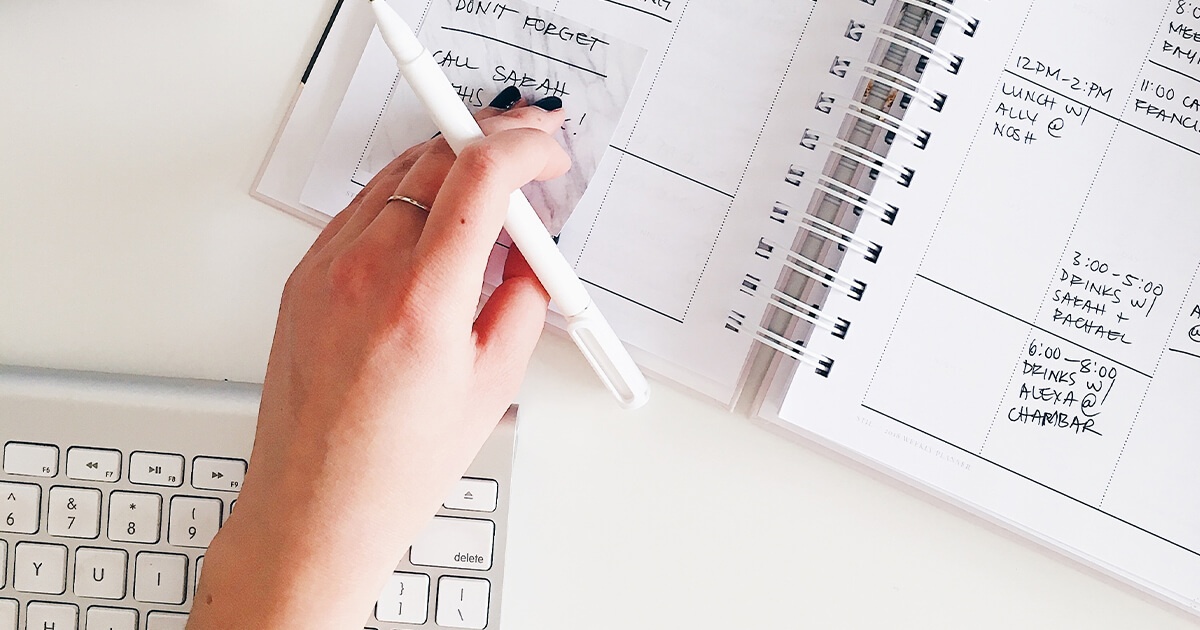When I think about podcasters, I picture Serial’s Sarah Koenig in a studio with her producer listening in and her researchers working frantically in an office next door.
That may be how most podcasts got started, but in an ever-digitalizing world, more and more podcasters are actually working on their craft remotely.
So I went to one of the experts. Danny Ozment runs his own remote podcasting business, producing 28 shows per week with his team of remote employees. I picked his brain about the process, how it works remotely, and some of his favorite tools, tips, and tricks of the trade.
Starting a remote podcasting business
Danny’s background is actually in music recording and production. But as a fan of podcasts, he began to notice that the sound quality and editing of many of his favorite podcasts was lacking.
So he started offering his sound production services to podcasters for free, and soon realized that there was a real market for remote podcasting.
When he officially started his business in 2009, Danny worked alone, keeping his files in Google Docs and using all kinds of different tools to make it work. But in the last few years, he’s gathered a team of editors, copywriters, project managers, web designers, and graphic designers to make the process go more smoothly.
But how can you produce a podcast remotely?
By keeping everything really, really organized.
Danny’s clients send any and all files, directions, and suggestions to one email address, and the project managers organize the information and task jobs out to the team members via Asana. They also use DropBox for large files, and Buffer and ConvertKit to manage the social media elements of their business.
Because all of Danny’s sound editors are trained engineers, most of what Danny does at this point is at the end of the production process. He tells me that for many of the weekly podcasts, he just listens to the episode once it’s finished and does quality checks for the web pages and any social media that went out when the episode was published.
He says that very rarely he’ll actually go to work with the client to help record some episodes and show the clients how to use the equipment for the first time. But much more frequently, everything is done completely remotely.
In fact, of his 28 regular clients, he’s only met 4 or 5 of them – and those were almost all at some type of conference!
Working remotely allows Danny to travel or even take his work on the go – all he needs is his laptop and some headphones. (And since he lives in Orlando – he’s even taken his work to Disneyworld!)
So who makes podcasts remotely? What types of clients does Danny have?
Danny and his team work with a pretty wide range of clients. They produce podcasts with large national organizations like The John Maxwell Team with millions of people on their email list, but also with all kinds of solo entrepreneurs, including a therapist, law firms, a dentist, online marketers, and some meditation/reiki experts.
Danny prefers working with podcasters who know what story they want to tell and let his team take care of the rest. That way, the client (as the expert in their field) is in charge of the content, and Danny and his team (the podcast experts) are there to guide them along the way.
Tips for finishing your project
Danny says that one of the best strategies for finishing your podcast (or, arguably, any project you feel that you don’t have time to work on!) is:
- To dedicate specific time to working on your project – even if that time is just one or two days per month; and
- To have some type of long-term plan.
He also subscribes to the philosophy that you can create a business that works for your life, specifically. He explains that the first few years of his remote podcasting business were definitely difficult, but, as he says, “I choose to run my own business so that I can be flexible.”
[Pro tip: Danny recommends a book called Profit First by Mike Michalowicz, about an cash-based accounting system that helps small business by forcing you to actually make money.]
And, of course, some podcast suggestions
Lastly, I had to ask Danny about his favorite podcasts!
The most helpful podcast for him, and for our community of Remote Hustlers:
- Brand You by Mike Kim (Danny tells me, “Just do everything he says.”)
Podcasts and podcasters he enjoys on his own time:
A podcast he’s really excited about right now:
- Pantsuit Politics (Danny likes it because the hosts don’t always agree on politics, but encourage respectful political discourse with every topic they discuss.)





